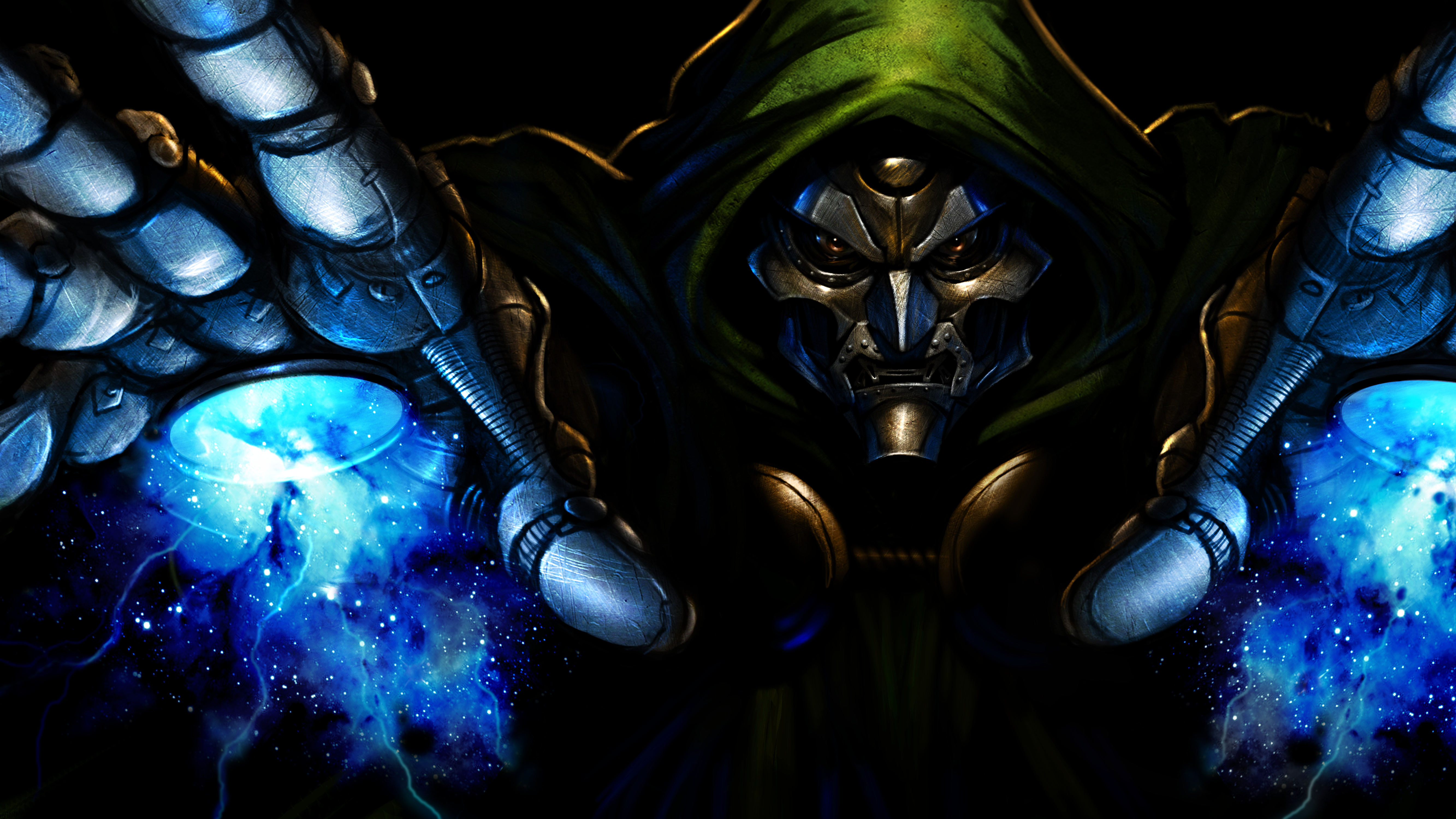Unveiling The Truth Behind Dr Doom 9/11: A Comprehensive Analysis
The phrase "Dr Doom 9/11" often refers to the controversial statements and predictions made by the renowned economist and geopolitical strategist, Nouriel Roubini, who earned the nickname "Dr. Doom" for his pessimistic economic forecasts. While Roubini is best known for predicting the 2008 financial crisis, his commentary on global events, including 9/11, has fueled both admiration and skepticism. His insights into the geopolitical landscape have made him a polarizing figure, with some hailing him as a visionary and others dismissing him as an alarmist. To fully understand the context of Dr Doom 9/11, it's essential to explore the broader implications of his predictions and their relevance to modern history. This article will not only dissect his views but also examine the societal and psychological factors that make such theories resonate with the public. By the end of this piece, you'll have a well-rounded understanding of the topic and the tools to critically evaluate its significance.
Table of Contents
- Who is Dr Doom? A Comprehensive Biography
- Dr Doom's Personal Details and Bio Data
- What Were Dr Doom's Predictions About 9/11?
- How Did Dr Doom 9/11 Shape Public Perception?
- Is Dr Doom 9/11 a Conspiracy Theory?
- Analyzing the Accuracy of Dr Doom's Forecasts
- What Is Dr Doom's Legacy in the Post-9/11 World?
- Frequently Asked Questions About Dr Doom 9/11
Who is Dr Doom? A Comprehensive Biography
Nouriel Roubini, widely known as "Dr. Doom," was born on March 29, 1958, in Istanbul, Turkey, to Iranian Jewish parents. His family moved to Iran and later to Italy, where he spent much of his childhood. This multicultural upbringing played a significant role in shaping his worldview and academic pursuits. Roubini's fascination with economics and geopolitics began early, leading him to pursue higher education in the field.
He earned his undergraduate degree in political science from Bocconi University in Milan and later completed his Ph.D. in economics at Harvard University. Roubini's academic journey equipped him with the tools to analyze complex economic systems and geopolitical dynamics. Over the years, he became a professor, author, and advisor to governments and financial institutions, earning a reputation for his bold and often dire predictions.
Read also:Mariza Rabbit Unveiling The Magic Of A Rising Star
While Roubini's nickname "Dr. Doom" stems from his gloomy forecasts, his insights have proven invaluable in understanding global crises. His ability to anticipate economic downturns and geopolitical shifts has made him a sought-after expert in both academic and policy-making circles. However, his predictions about events like 9/11 have also drawn criticism, raising questions about the limits of economic forecasting in the realm of geopolitics.
Dr Doom's Personal Details and Bio Data
| Full Name | Nouriel Roubini |
|---|---|
| Nickname | Dr. Doom |
| Date of Birth | March 29, 1958 |
| Place of Birth | Istanbul, Turkey |
| Nationality | Iranian-Italian-American |
| Education | Bocconi University, Harvard University |
| Profession | Economist, Professor, Author |
| Notable Work | Predicting the 2008 Financial Crisis |
What Were Dr Doom's Predictions About 9/11?
One of the most debated aspects of Dr Doom 9/11 is whether Nouriel Roubini made any specific predictions about the September 11 attacks. While Roubini himself has never claimed to have foreseen the exact events of 9/11, his analyses of global instability and geopolitical risks have been cited as eerily prescient. In the years leading up to the attacks, Roubini frequently warned about the vulnerabilities of the global financial system and the potential for catastrophic events to disrupt it.
His predictions were rooted in a deep understanding of how economic and political factors intersect. For instance, Roubini highlighted the growing tensions between the United States and various Middle Eastern nations, as well as the increasing likelihood of terrorist activities targeting Western interests. While these warnings were broad in scope, they resonated strongly in the aftermath of 9/11, leading some to associate him with the phrase "Dr Doom 9/11."
It's important to note that Roubini's forecasts were not isolated to a single event but rather part of a broader framework for understanding global risks. His work emphasized the interconnectedness of economic and geopolitical systems, suggesting that crises often emerge from a combination of factors rather than a single trigger. This holistic approach has made his insights both valuable and controversial in discussions of 9/11 and other global events.
How Did Dr Doom 9/11 Shape Public Perception?
The phrase "Dr Doom 9/11" has had a profound impact on public perception, particularly in how people interpret geopolitical risks and economic forecasts. Following the 9/11 attacks, Roubini's earlier warnings about global instability were revisited, with many attributing a sense of foresight to his analyses. This association elevated his status as a commentator on global affairs, even though his predictions were not specific to the events of that day.
For many, the term "Dr Doom 9/11" encapsulates the tension between skepticism and belief in expert predictions. While some view Roubini's insights as invaluable warnings, others see them as overly pessimistic or even alarmist. This duality has fueled debates about the role of economists and analysts in shaping public understanding of global events.
Read also:Unveiling The Olivia Munn Deepfake Phenomenon What You Need To Know
Moreover, the phrase has contributed to the broader culture of conspiracy theories surrounding 9/11. By linking Roubini's name to the attacks, some have speculated about hidden agendas or insider knowledge, further complicating the narrative. Regardless of one's perspective, the impact of "Dr Doom 9/11" on public discourse is undeniable, highlighting the enduring fascination with predictions and their implications.
Is Dr Doom 9/11 a Conspiracy Theory?
The association of "Dr Doom 9/11" with conspiracy theories is a topic of considerable debate. While Nouriel Roubini has never claimed insider knowledge of the 9/11 attacks, his reputation as a predictor of global crises has led some to speculate about his involvement or awareness of the events. This speculation, however, lacks credible evidence and is largely based on misinterpretations of his work.
Conspiracy theories often thrive in the absence of clear explanations, and the phrase "Dr Doom 9/11" has become a magnet for such narratives. Some have suggested that Roubini's warnings about global instability were more than just economic forecasts, implying a deeper understanding of the geopolitical forces at play. These claims, however, are not supported by Roubini's public statements or academic work.
Instead, it's essential to approach the topic with a critical mindset, distinguishing between evidence-based analysis and unfounded speculation. While Roubini's insights into global risks are valuable, they should not be conflated with conspiracy theories. By examining the facts and understanding the context, we can separate myth from reality and gain a clearer perspective on the role of "Dr Doom 9/11" in public discourse.
What Evidence Supports the Conspiracy Theories?
Despite the lack of credible evidence, some proponents of the "Dr Doom 9/11" conspiracy theory point to Roubini's past predictions as proof of his insider knowledge. They argue that his ability to foresee economic downturns and geopolitical risks suggests a deeper understanding of global events. However, this argument overlooks the fact that Roubini's forecasts are based on rigorous analysis rather than insider information.
Why Should We Be Skeptical of These Claims?
Skepticism is crucial when evaluating claims about "Dr Doom 9/11." Without concrete evidence, these theories remain speculative and unsupported. By focusing on credible sources and expert analysis, we can avoid falling prey to misinformation and gain a more accurate understanding of the topic.
Analyzing the Accuracy of Dr Doom's Forecasts
To assess the accuracy of Dr Doom's forecasts, it's essential to examine both his successes and limitations. Roubini's prediction of the 2008 financial crisis is often cited as a testament to his analytical prowess. By identifying the vulnerabilities in the housing market and the broader financial system, he provided a roadmap for understanding the crisis. However, his forecasts about geopolitical events, including those associated with "Dr Doom 9/11," are more nuanced.
Roubini's analyses often highlight systemic risks rather than specific events. For example, his warnings about global instability were rooted in broader trends, such as economic inequality and geopolitical tensions. While these insights are valuable, they do not always translate into precise predictions. This limitation underscores the challenges of forecasting complex global events.
Despite these challenges, Roubini's work remains a valuable resource for understanding the interconnectedness of economic and geopolitical systems. By examining his methodologies and conclusions, we can gain a deeper appreciation for the complexities of global risks and the importance of critical thinking in interpreting expert forecasts.
What Is Dr Doom's Legacy in the Post-9/11 World?
In the post-9/11 world, Dr Doom's legacy is defined by his contributions to the understanding of global risks and his influence on public discourse. His insights into economic and geopolitical dynamics have shaped how we analyze crises and prepare for future challenges. The phrase "Dr Doom 9/11" serves as a reminder of the enduring impact of his work, even as it remains a subject of debate.
Roubini's legacy extends beyond his predictions, encompassing his role as an educator and thought leader. By fostering a deeper understanding of global risks, he has empowered individuals and institutions to navigate an increasingly complex world. Whether viewed as a visionary or a skeptic, his contributions to the field of economics and geopolitics are undeniable.
Frequently Asked Questions About Dr Doom 9/11
What Does "Dr Doom 9/11" Refer To?
"Dr Doom 9/11" refers to the association between Nouriel Roubini's predictions about global instability and the September 11 attacks. While Roubini did not specifically predict 9/11, his warnings about geopolitical risks have been linked to the event in public discourse.
Did Dr Doom Predict 9/11?
No, Dr Doom did not predict the 9/11 attacks. His forecasts focused on broader trends, such as economic instability and geopolitical tensions, rather than specific events.
Why Is Dr Doom's Work Controversial?
Dr Doom's work is controversial because of its pessimistic tone and the speculative nature of some interpretations. While his insights are valuable, they are often misunderstood or misapplied, leading to debates about their accuracy and relevance.
Conclusion
The phrase "Dr Doom 9/11" encapsulates the complexities of global risks and the challenges of forecasting in an uncertain world. By examining Nouriel Roubini's work and its impact on public discourse, we gain a deeper understanding of the interconnectedness of economic and geopolitical systems. Whether viewed as a visionary or a skeptic, Dr Doom's contributions remain a valuable resource for navigating the complexities of the modern world.
For further reading, you can explore The Economist, which offers in-depth analysis of global economic and geopolitical trends.
Sheren Falah Saab: The Inspiring Journey Of A Visionary Leader
Xavier Gonzalez Stanford: A Comprehensive Guide To His Life And Achievements
Who Is Joe Kim Patriots? Unveiling The Inspiring Journey Of A Rising Star

Dr Doom Wallpaper WallpaperSafari

Dr. Doom Residual Spray Lone Star Tack and Feed